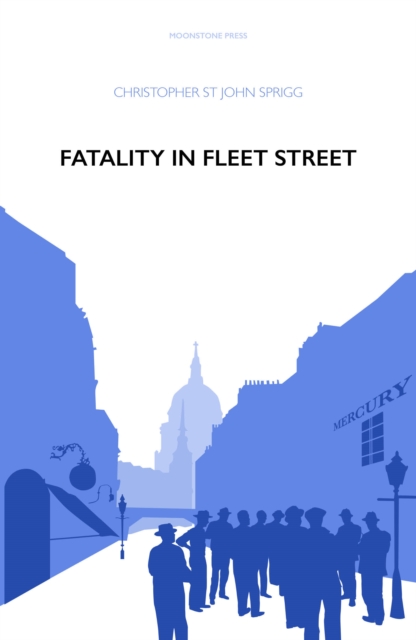
Fatality in Fleet Street Paperback / softback
by Christopher St John Sprigg
Paperback / softback
Description
“Three hundred years ago, Lord Carpenter, I’d have had your head on a spike on Tower Hill..â€It is 1938 and newspaper chief Lord Carpenter is about to publish a front-page story that will guarantee war with Russia.
But before the paper can go to print, he is found stabbed in his office, and circumstances suggest the killer is one of his staff.
Everyone from the editor-in-chief to the staff librarian had the opportunity.
But was the motivation for the murder political or personal?Crime reporter Charles Venables finds himself both suspect and sleuth as he tries to disentangle the clues and determine which of his colleagues is the guilty party.
Red herrings abound, but it soon becomes apparent that more than one person had a reason to want Carpenter dead…. Fatality in Fleet Street displays the author’s trademark wit and a plot with plenty of twists and ingenuity to please the reader.
Equally interesting are the political overtones and the militaristic pretensions of the deceased newspaper baron.
The novel is set in 1938 – five years later than its real publication date – and presents a Russia whose economy is growing, which makes the country ‘a real menace to the established order of things’ in Carpenter’s worldview.
Although the imperious newspaper baron meets his demise early on, his outsized personality and ambition are the bedrock that propels the story.
Sprigg makes his satire clear; there is more than a passing resemblance between the fictional Lord Carpenter and the real world Max Aitken, Lord Beaverbrook, owner of the Evening Standard and Daily Express. Sprigg started his career as a cub reporter and the book’s setting of a busy newspaper is well realised.
Fatality also takes a sardonic view of socialist activity in Britain.
When Venables goes to investigate a local chapter of the Communist Party, the situation is alternately threatening and farcical, with members parading their revolutionary credentials and loudly denouncing the ‘bourgeois’.  Sprigg later became an active member of the Communist Party and published Marxist literary criticism, but his gently mocking tone in Fatality suggests this conversion was some way off in 1933.
Information
-
Less than 10 available - usually despatched within 24 hours
- Format:Paperback / softback
- Pages:285 pages
- Publisher:Moonstone Press
- Publication Date:01/01/2019
- Category:
- ISBN:9781899000067
Other Formats
- Paperback / softback from £9.95
Information
-
Less than 10 available - usually despatched within 24 hours
- Format:Paperback / softback
- Pages:285 pages
- Publisher:Moonstone Press
- Publication Date:01/01/2019
- Category:
- ISBN:9781899000067






